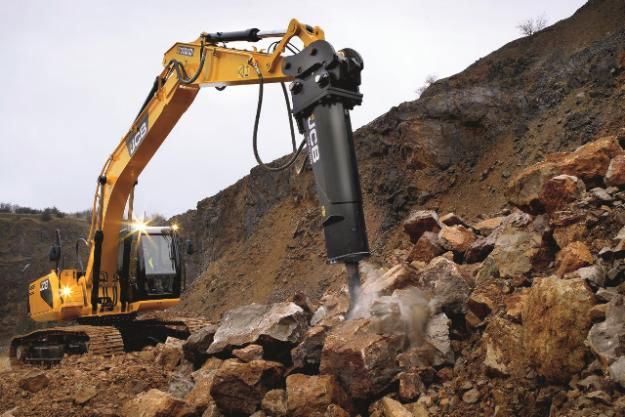Septic Ohio - Comprehensive Septic Tank Services in Ohio
Septic Ohio - Comprehensive Septic Tank Services in Ohio
Blog Article
Comprehensive Excavation Strategies: Understanding the Principles for Success
The careful planning, specific implementation, and thorough interest to detail needed in excavation projects require a comprehensive approach that includes various basic aspects. The true mastery lies not just in recognizing these principles however in flawlessly integrating them to browse the complexities of excavation projects with skill.
Recognizing Excavation Project Preparation

Effective excavation tasks are improved the foundation of extensive and precise preparation. The first phase of any kind of excavation job is the drawing board, where crucial decisions are made that can dramatically affect the result of the task. Throughout this phase, it is vital to gather all pertinent information concerning the site, consisting of topographical surveys, soil structure, and any type of possible dangers that may exist. Understanding the task extent, spending plan, and timeline restrictions is important for producing a comprehensive excavation plan that makes certain the task's success.
One key aspect of excavation project preparation is the advancement of a thorough timeline that outlines the sequence of activities, turning points, and deadlines. By very carefully thinking about all these elements throughout the planning stage, excavation tasks can be implemented efficiently and efficiently, leading to successful results - lancaster trenching.
Dirt Evaluation and Site Evaluation
Performing detailed soil analysis and website examination is an important action in the preparation stage of any type of excavation task. Dirt analysis entails identifying the structure, structure, and residential or commercial properties of the dirt at the excavation website. This information is critical for understanding the soil's bearing capacity, moisture content, and potential for erosion, which are essential elements in determining the excavation methods and tools needed for the task.
Website examination goes past soil analysis and incorporates a wider assessment of the general website problems. This examination includes determining any prospective threats, such as below ground energies, environmental problems, or unsteady surface, that might impact the excavation procedure. By extensively evaluating the site, project managers can create reliable excavation approaches that focus on safety and security, efficiency, and environmental defense.
Making use of innovative technologies like ground-penetrating radar, dirt tasting, and drone surveys can improve the accuracy and performance of dirt analysis and website analysis. Investing time and resources in these initial steps can inevitably save time and avoid expensive delays or problems throughout the excavation procedure.
Tools Option and Use
Reliable excavation jobs depend greatly on calculated tools choice and usage to ensure ideal efficiency and performance. Choosing the best devices for the job is critical in making best use of effectiveness and decreasing downtime. Elements such as the kind of soil, deepness of excavation, and task extent play a considerable function in identifying one of the most appropriate tools for the job at hand.

Along with selecting the suitable tools, proper use is key to job success. Operators needs to be trained to manage the tools safely and effectively - septic ohio. Normal maintenance checks and prompt fixings assist stop failures and ensure regular performance throughout the task
Security Steps and Laws Compliance
In the realm of excavation jobs, prioritizing safety measures and conformity with policies is critical to guaranteeing a safe and septic ohio secure and legitimately audio operational environment. Precaution incorporate a variety of practices, including performing complete site evaluations, carrying out appropriate signage and obstacles, and offering adequate security training for all employees associated with the excavation process. Adherence to regulations, such as OSHA demands in the United States, guarantees that the excavation task fulfills the necessary standards to shield workers, bystanders, and the surrounding environment.

Tracking Progress and Adjusting Approaches
Exactly how can project managers efficiently track the development of excavation tasks and adapt their methods appropriately to optimize end results? Tracking development is important for making certain that excavation jobs remain on track and satisfy deadlines. Task managers can make use of different devices and techniques to track development, such as day-to-day report card, normal website examinations, and progressed surveillance technologies like drones and general practitioners tracking systems. By continuously keeping an eye on the project's advancement, managers can identify any type of possible hold-ups or problems early and take proactive measures to resolve them.

Conclusion
To conclude, grasping the principles of extensive excavation techniques is crucial for the success of any task. By comprehending job preparation, examining dirt and site conditions, selecting ideal devices, following safety policies, and checking development, job supervisors can ensure a reliable and smooth excavation process. Executing these approaches will certainly result in effective outcomes and decrease possible dangers or setbacks during the excavation task.
The initial phase of any kind of excavation project is the planning phase, where important decisions are made that can considerably affect the outcome of the job. Understanding the project spending plan, timeline, and range restraints is critical for producing an extensive excavation strategy that makes certain the project's success.
How can forecast managers effectively track the development of excavation jobs and adjust their methods accordingly to optimize results? By carefully monitoring progression and being ready to adjust strategies, job managers can boost the overall success of excavation projects.
By comprehending task preparation, examining dirt and website conditions, choosing appropriate devices, abiding with security laws, and keeping track of progression, project supervisors can guarantee a smooth and reliable excavation procedure.
Report this page